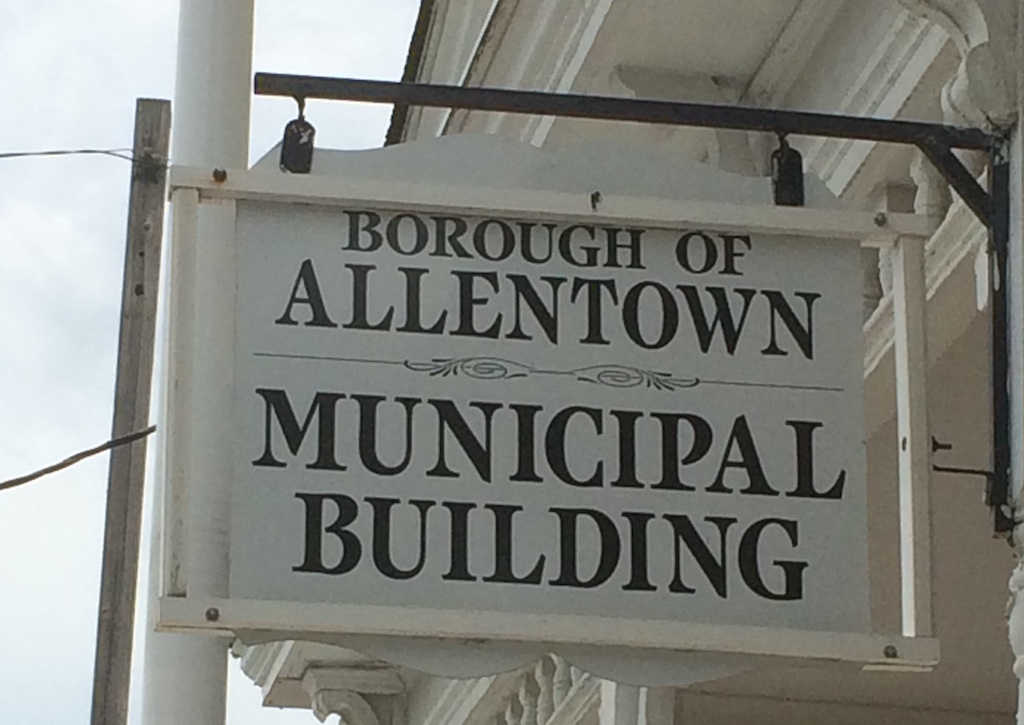By Mark Rosman
Staff Writer
ALLENTOWN – Leave it to beavers.
Problems linked to beavers who make their home in Allentown’s waterways came to a head at the Borough Council’s Jan. 17 meeting after a three-day holiday weekend apparently saw the issue debated on social media.
The beaver brouhaha seems to break down into two camps: residents who see the beavers as a threat to properties and want them removed, and those who want the beavers to remain in the place they have chosen to call home.
People on both sides of the issue spoke at the council meeting after borough officials said they cannot regulate water or wildlife issues.
Mayor Greg Westfall said the problems are the domain of the state. He suggested that the interested parties reach out to the New Jersey Department of Environmental Protection (DEP) for assistance.
One point of discussion centered on whether traps had been set to capture beavers.
Resident Linda Cotte said an individual who was licensed by the state had set traps at a location in the borough and she said 30 beavers had been taken out.
Cotte said one beaver that was caught weighed 72 pounds and another beaver that was caught weighed 76 pounds. She said the traps had been removed as of Jan. 17.
“The beavers are eating the bark off trees. When that happens the tree dies,” she said, adding that she does not want to kill any animals.
“The trees fall down and the bank (on Indian Run, behind Pondview Drive) erodes. The waterway is spreading out (onto properties) and other trees are dying as the water spreads out. I have been amazed at what these animals are capable of doing. They need to be thinned out. There has to be a way (people and animals) can live together,” Cotte said.
The council heard from resident Tabitha Hilliard, who was attempting to find out if traps had been set on borough land. Westfall said traps were not set on borough land.
Hilliard said residents are concerned their pets will be harmed by the beaver traps.
Borough officials also heard from Veronica Van Hof, director of the Unexpected Wildlife Refuge, Newfield, Gloucester County. The organization states that part of its mission is “to provide an inviolate sanctuary for animals and plants indigenous to New Jersey Pinelands habitat.”
Van Hof said relocating beavers during the winter is not a solution her group would support. Relocating the animals would leave them without food or shelter at the new location, she said.
Westfall said he reached out to the DEP on Jan. 17 and received a response that day from Carole Stanko, chief of the Bureau of Wildlife Management. Stanko said the season for beaver trapping began on Dec. 26 and will end on Feb. 9.
Stanko wrote, “Modern wildlife damage mitigation practices do not employ the relocation of problematic species like beavers for (several) reasons. These reasons compel us to eliminate relocation not only for the safety of New Jersey’s residents, but for the welfare of the beavers themselves.”
Stanko, like Van Hof, said relocating beavers during the winter would take them away from the food they stored and the shelter they built in preparation for the cold season.
Resident Bill Cotte said although the traps had been removed as of Jan. 17, “they will be back. There are dams on Indian Run, I know, I live there. Every tree on our property has to be wrapped in chain link fence, there are a lot of beavers here. You can’t relocate a beaver, it gives someone else a problem.”
The issue of Allentown’s hungry and industrious beavers was not resolved during the council meeting.

